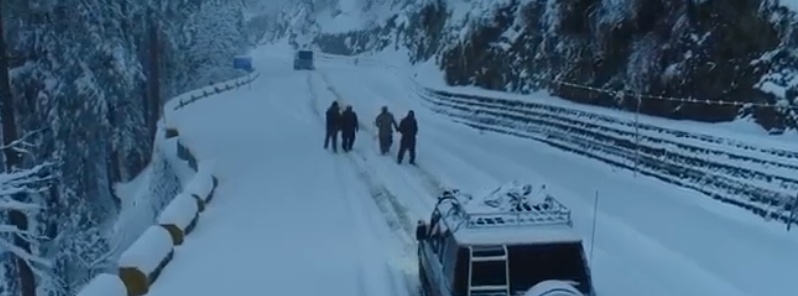Heaviest January snowfall in 48 years helps drought-stricken Pakistan

Pakistan's mountainous areas received heavy snowfall in January 2019, helping the country whose fresh water is running out at an alarming rate.
The country's northern hilly areas received up to 1.8 and 2.1 m (6 and 7 feet) in January and the first week of February. This is the heaviest snowfall in 48 years, Abdul Wali Yousafzai, a senior officer in Khyber Pakhtunkhwa irrigation department told Anadolu Agency.
"Snowfall and rain will not only help to raise our water table but also be beneficial for our forests that had been affected by drought," he added.
"The rainfall will raise the water table while the snow will melt into our river. It's a blessing from God," Prime Minister Imran Khan.





Lack of rainfall has led to recurring droughts of different spans and intensity since 2000 hitting hard the local population, Islamic Relief NGO reported February 11.
The situation since 2013 has become all the more alarming due to 74% decrease in rainfall impacting hard on water management, agriculture, livestock, health, food security and livelihoods.
As there is no letup in the rainfall, several districts are currently in the grip of famine like situation.
On September 06, 2018, Pakistan Metrological Department (PMD) issued a drought alert warning the situation in areas like Dalbandin, Gawadar, Jiwani, Panjgur, Pasni, Nokundi, Urnmara, Quetta and Turbat to become worse by the end of year 2018.
According to PMD, districts Chagai, Noshki, Kharan and Washuk are badly affected with severe impacts on their agriculture and livestock sectors forcing the local population to migrate to different areas. Around 33% of local population have migrated to other different places.
Depletion of irrigation sources have led to the destruction of 63% of apple and 48% of apricot, peach and plum orchards. Regarding accessibility, 60% non-availability of cereal crop and fruits in the market is also a major cause of concern.
Featured image credit: Mohsin Sajjad

Commenting rules and guidelines
We value the thoughts and opinions of our readers and welcome healthy discussions on our website. In order to maintain a respectful and positive community, we ask that all commenters follow these rules.